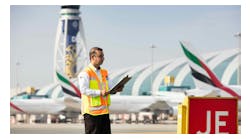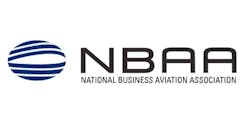WASHINGTON (AP) -- Government safety inspectors are not keeping up with potential risks posed by airline industry changes that include getting more planes in the air more quickly to meet a surge in air travel and to save money, says a report released Wednesday.
The Federal Aviation Administration ''still has a substantial amount of work ahead to improve its oversight systems, especially given the magnitude of changes air carriers are making and the pace at which the changes are occurring,'' said the report by Transportation Department inspector general Kenneth Mead.
The FAA strongly disagreed with the report, saying it has recognized since 1996 that the airline industry was in transition. ''We changed the way we do business as the industry changed,'' said spokesman Greg Martin.
As a result, ''this is the safest period in aviation history,'' Martin said.
The report concluded that inspectors weren't able to monitor airline industry changes quickly enough, a big concern given that the FAA may not have enough inspectors because of likely budget cuts next year.
The agency is expected to lose about 300 aviation safety inspectors this year and only has plans to replace a third of them.
Peggy Gilligan, the FAA's deputy associate administrator for aviation safety, acknowledged the agency will have to make sure it has enough staff.
''Obviously we're going to have to look back at that concern,'' Gilligan said in a conference call with reporters.
The report said recent incidents resulting from the stresses on the industry may be harbingers of more serious safety problems.
Airlines are turning planes around faster at gates to save money and sometimes don't follow required operating procedures. FAA inspectors don't consider that practice a potential risk, the report said, even though it might not allow time for an aircraft's brakes to cool sufficiently or for all routine maintenance to be completed.
The report looked at five major airlines that have lost record amounts of money _ United, Delta, American, Northwest and US Airways. The FAA, though, only stepped up its surveillance at the three that are in or near bankruptcy, the report said. The agency has a policy of increasing inspections of financially troubled airlines.
Since Sept. 11, 2001, the five air carriers retired 664 aircraft and stored 166 more, closed 42 maintenance facilities and cut the work forces by 9,920 pilots and 12,873 mechanics through the end of 2003.
As a result, pilots are flying more hours. At one airline, the FAA found that a series of operational errors could have been caused by the pilots' stress and fatigue that resulted from pay cuts and flying extra hours to make up for them.
Gilligan said the FAA's principal inspectors meet weekly with airline safety inspectors to make sure they know about emerging risks.
For example, she said, the FAA may not need to do more inspections of an airline that's downsizing because it has fewer planes and fewer employees. But it may want to do different kinds of oversight. If a captain has to take a first officer's job because of job cuts, the airline might want to make sure he's retrained properly.
The inspector general also reviewed five low-cost airlines, noting that fast growth carries safety risks as well. They were JetBlue, ATA, AirTran, Frontier and Spirit.
One low-cost carrier added 56 percent more planes and nearly tripled its destinations, but reduced its mechanics by 14 percent, the report noted. But the FAA didn't identify those changes as risks, the report said.
Airlines now use their aircraft for more hours during the day, which means most maintenance is now done overnight, the report said. But FAA inspectors spend only 3 percent of their time conducting inspections at night.
Airlines have also reduced the number of people who handle airplanes on the ramps, which could also lead to dangerous errors, the report said. But FAA inspectors at only one of the five traditional airlines were closely tracking ramp operations, the report said.




